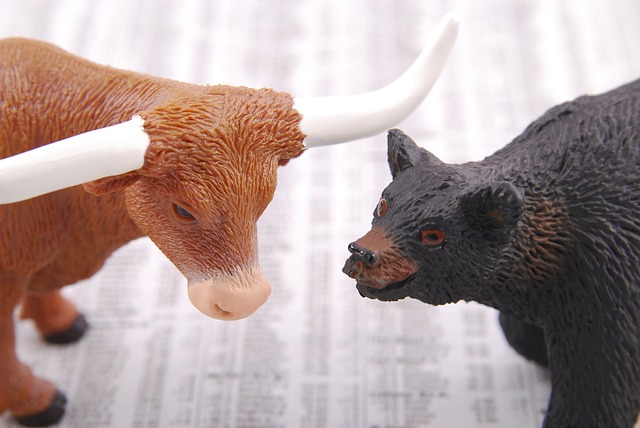The business world is very complex as it may seem. So if you listen to business or financial-related news you will hear an array of odd or unusual phrases used by experts to illustrate the different activities that occur in a stock market. And more often than not, the most perplexing terms that you may come across with are the terms “bear market” and “bull market”.
These two terms are very important in the field of stock market and it is a must that you familiarize yourself with such terms if you want to be successful in this business. This article is primarily intended to help you understand the two conflicting financial concepts.
What is the bear market?
A bear market is a term used by stock marketers to describe the so-called “pessimistic market”. As opposed to rising, a pessimistic market views the process of stocks and other securities falling outright or lagging behind. In the so-called “bear market”, a lot of major investors are afraid or hesitant to make further investments. The main reason is because the investors know that it will not prosper in a way or another.
What is meant by the pessimistic market?
A bear market is often equated to pessimistic market. A pessimistic market usually means that the economy is not working well and that most investors are not willing to spend their money on new investments. During the period of a pessimistic market, unpopular companies, as well as well-known companies, tries to carry out different course of actions just to keep their respective companies afloat, because if not, they will definitely lose it.
However, it is also important to bear in mind that although the prices of stocks are dropping drastically in a pessimistic market, it is still possible to make money, especially in long-term investments.
A lot of companies would recover from a pessimistic market to show record gains in the succeeding years and the stock prices will go high substantially. But in few instances, buying shares when the prices are very low can be risky sometimes. Although there are many cases proving that buying shares during this period is quite profitable as long as you can handle the economic troubles that you might encounter later on.
What is the bull market?
The bull market is the term used to describe or express an optimistic market. In a bull market, the prices of stocks and securities are continuously rising. During the period of a bull market, a lot of major investors are encouraged to make further investments. The reason for this is very simple, the investors are very sure that they will be able to make reasonable profits out of their new investments because of the market-wide trend of expansion and growth.
What is meant by the optimistic market?
Contrary to a pessimistic market, an optimistic market means that the economy is working well and that most investors are willing to spend their hard-earned money on investments. Also, during the optimistic market, a lot of less popular companies start to thrive.
However, do not think that an optimistic market is a sure guarantee of success; always remember that the stock market is very complex and volatile thus it is possible that it can drop or fall in value without any warning. In most instances, an optimistic market ends abruptly because there are investors who are artificially increasing the price of stocks with multiple investments.
As a conclusion, we can say that both the bear market and the bull market has their own advantages and disadvantages with regard to stock market investments.


